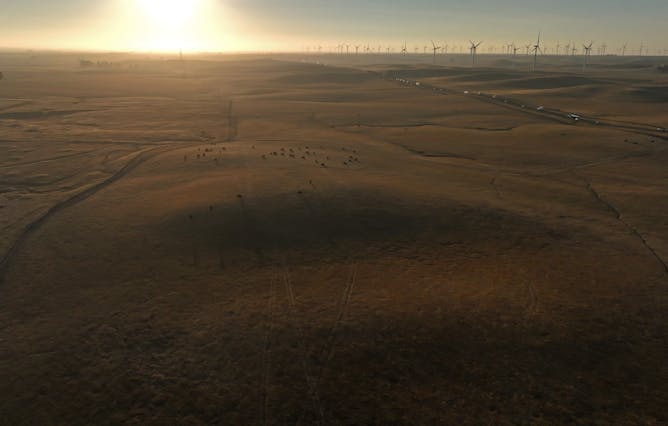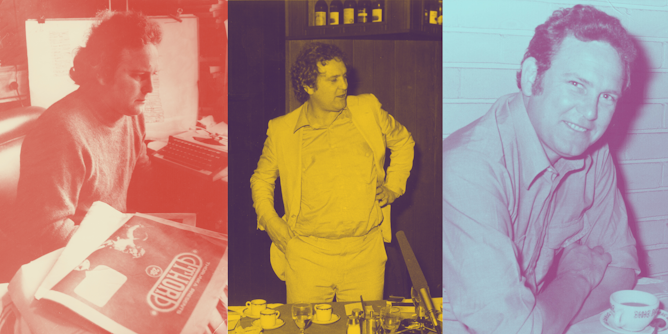|
Spring is here and summer is just around the corner – and it looks like we’re in for a hot one. It’s only natural to seek relief at the beach, river or local pool. But having fun in the sun and surf, or getting cool at the pool, are not without risk.
Drowning is a daily occurrence in Australia over summer. We know because the Royal Life Saving Society produces an annual report on the number of drownings during the hottest months. But the relationship between drowning and heatwaves had not been specifically investigated, until now.
Amy Peden and her colleagues have crunched the numbers. They discovered drowning risk increases during heatwaves, but it’s not a linear relationship. The risk goes up with low-intensity heatwaves, spikes with more severe heatwaves, and then drops off a bit in the most extreme conditions.
Having a better understanding of the risks can help save lives. The authors offer strategies people can use to reduce their risk of drowning, and discuss implications for those who try and keep us safe around the water. We’re going to need them more than ever.
|

|
Clare Peddie
Deputy Environment + Energy Editor
|
|

Amy Peden, UNSW Sydney; Hannah Mason, James Cook University; Jemma King; Richard Franklin, James Cook University
New research reveals drowning risk increases during Australian heatwaves, especially severe heatwaves. Here’s who is most at risk and what we can all do to stay safe.
|

Ryan Day, University of Tasmania; Jayson Semmens, University of Tasmania; Robert McCauley, Curtin University
Mounting evidence shows seismic surveys can harm a range of marine animals.
|

Deren Pillay, University of Tasmania; Bill Dodd, University of Tasmania; Bin Jalaludin, UNSW Sydney
Reducing air pollution is one of the best investments for Australians’ health, the environment, the economy and social equity. But achieving cleaner air requires a new approach from government.
|

Michelle Grattan, University of Canberra
At a crack-of-dawn news conference at Canberra airport, King suggested the 2020 incident was a factor, although “there was no one factor that influenced my decision in relation to the national interest”.
|

Michelle Grattan, University of Canberra
In this podcast, Redbridge Group CEO Kosmos Samaras joins The Conversation to dig into the research on voters attitudes so far
|

Peter O'Sullivan, Curtin University; JP Caneiro, Curtin University; Mark Hancock, Macquarie University; Peter Kent, Curtin University
A new therapy aims to undo some of the harmful and restrictive patterns patients have been taught to ‘protect’ their back from pain. Instead, they’re learning to trust and move their body again.
|

Alyssa Clare Milton, University of Sydney; Ian Hickie, University of Sydney; Karen Thorpe, The University of Queensland; Tom McClean, Western Sydney University
Our new research shows the benefits of involving children in designing the activities they do in outside school hours care.
|

Iain White, University of Waikato
A controversial new city project in northern California has echoes of past utopian plans – but idealism and commercial reality have always been uneasy partners.
|

Catharine Lumby, University of Sydney
Frank Moorhouse had a lifelong fascination with crossing borders – including the borders of gender and sexuality. It was reflected in both his life and his writing.
|
Politics + Society
|
-
Vanessa Barolsky, Deakin University; Yin Paradies, Deakin University
Truth-telling between First Nations and non-Indigenous people is a vital step in recognising past colonial wrongdoing. And research has found it is also a step towards self-determination and healing.
-
Geoffrey Roberts, La Trobe University
China is seeking not merely to resist but to dismantle a foundational idea of the post-Cold War international order – the universality of human rights.
|
|
Health + Medicine
|
-
Dr Jane Tiller, Monash University; Paul Lacaze, Monash University
Life insurance companies can legally use the results of genetic tests to decline coverage or increase premiums. MPs have called for legislation that bans this practice.
|
|
Science + Technology
|
-
Joseph Lizier, University of Sydney
Some natural systems seem to effortlessly synchronise themselves, even in the face of heavy disturbances. A new study has found the factor that makes it possible.
|
|
Environment + Energy
|
-
Arjuna Dibley, The University of Melbourne
A recently settled class action lawsuit against the Australian government could help drive greater disclosure of climate financial risk by governments, central banks and companies.
|
|
Arts + Culture
|
-
Lisa M. Given, RMIT University; Jessica Balanzategui, RMIT University; Sarah Polkinghorne, RMIT University
As artificial intelligence becomes mainstream, its infiltration into children’s lives is causing tremendous anxiety.
|
|
Books + Ideas
|
-
Brigid Rooney, University of Sydney
A new book designed to interest potential and beginning readers also offers plenty of new ideas to interest well-versed Murnanians.
|
|
Business + Economy
|
-
Arjuna Dibley, The University of Melbourne
A recently settled class action lawsuit against the Australian government could help drive greater disclosure of climate financial risk by governments, central banks and companies.
-
Meg Elkins, RMIT University; Ananta Neelim, University of Tasmania; Robert Hoffmann, University of Tasmania
Management jobs are proliferating much faster than other roles. But behavioural research shows the extra box-ticking can leave employees feeling stressed, patronised and demotivated.
|
|
| |
|
|
|
Auckland University of Technology
Auckland, New Zealand
•
Full Time
|

|
|
Auckland University of Technology
Auckland, New Zealand
•
Full Time
|

|
|
|
|
| |
| |

|
| |
| |
| |
Featured Events, Courses & Podcasts
|
View all
|
|
1 January 2023 - 7 October 2026
•
|

|
6 July - 6 October 2023
•
|

|
15 - 17 September 2023
•
Sydney
|

|
18 September - 14 November 2023
•
New Zealand
|

|
|
|
|
| |
| |
| |
| |
| |
|
|